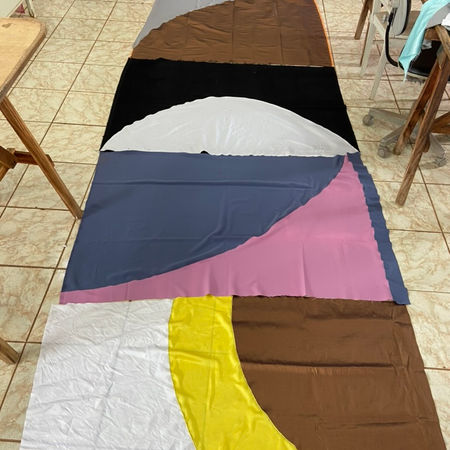top of page

17th SPRING OF MUSEUMS
“Memory is an evocation of the past.
It is the human capacity to retain and save
the time that was gone, saving it from total loss.”
Marilena Chaui
The theme Memories and Democracy: LGBT+ people,
indigenous and quilombola communities is the inspiration for the realization
of the activities of the 17th Museum Spring, offering
opportunities to reflect on the construction of
democracy of its agents.
The history of the formation of Brazil, in the task of implementing
an effectively democratic regime and that, at the same time
time, was able to guarantee and create rights, is marked
by crises and interruptions, like the one we experienced on the 8th of
January 2023, with the threat of a coup d'état and the
terrorist attacks on historical and cultural heritage and
political dimension of our country.
It is to recognize that democracy is made by many hands,
that we associate the debate on the resumption of construction
of democracy with the participation of many of its
agents who are still invisible or marginalized today.
In the context of a new government that promotes
reconstruction and union of Brazil, we want to encourage that
museums, holders and promoters of memory, culture, and
of the arts, contribute to the recognition, appreciation
and the protagonism of LGBT+, indigenous and
quilombolas in the production of their own memories.
Where are these people in the museums? What collections
representative of their cultures they preserve? How do they
are presented to society and how museums
contribute to their recognition and appreciation? Who
museums listen when dealing with LGBT+ people,
indigenous and quilombola communities?
The memories of the LGBT+ community are fundamental to
understand the fight for civil rights, equality and respect.
Throughout history, LGBT+ individuals have faced
discrimination, marginalization and persecution in many
societies. These collective memories encompass
protest movements, demonstrations, events
significant, such as the Stonewall riots in 1969, and the
continued efforts to achieve, for example, equality
in marriage, adoption and non-discrimination.
Democracy plays an important role in ensuring
that the rights of LGBT+ people are protected and
respected. Through political participation and
involvement with democratic institutions, the community
LGBT+ can fight for social and legislative changes that
fully recognize their rights and freedoms.
The memories of indigenous peoples are essential to
preserve their cultures, languages and ancestral knowledge.
Many indigenous communities have faced centuries of
colonialism, exploitation and oppression that caused the loss
of lands, the destruction of traditions and the denial of their
fundamental rights.
Effective democracy for indigenous peoples implies the
respect for their rights to self-determination, consultation and
free, prior and informed consent on matters that
affect their lands and communities, in an approach
inclusive that values your memories and perspectives.
The memories of the quilombola communities are a
testimony to resistance and resilience over time.
Quilombos emerged as autonomous communities of
people of African descent who escaped slavery and
fought for freedom and dignity.
For quilombola communities, democracy means
official recognition of their lands and rights, preserving
their cultural traditions and ensuring access to services
basics, such as education and health. It is essential that their voices
be heard in decisions that affect their lives and
territories.
Brazilian Institute of Museums
2023
Realização
Jaboticabal Historical Museum - SP
Local
Friends of Art and City Hall of Jaboticabal
Apoio e Financiamento
PROJECT RECORDS

bottom of page



















